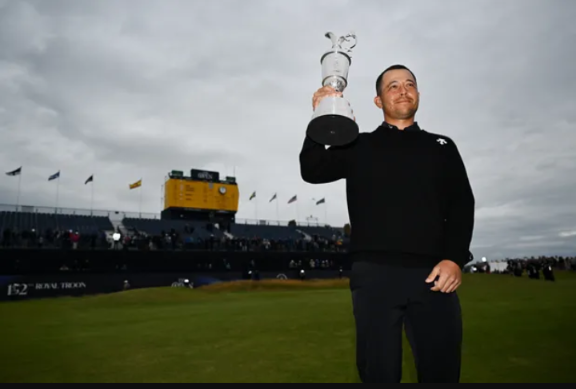In the upcoming Olympics, the United States will be represented by four elite golfers: newly crowned Open and US PGA champion Xander Schauffele, world No.1 Scottie Scheffler, two-time major champion Collin Morikawa, and 2023 US Open winner Wyndham Clark. Despite the growing interest in Olympic golf, the sport’s top tournaments, the majors, remain the pinnacle of achievement for these athletes.
Eight years after golf’s reintroduction to the Olympics, some players still regret their decisions to withdraw from the Rio Games in 2016. Jason Day, who was world No.1 at the time, chose not to participate due to concerns about the Zika virus. Reflecting on his decision, Day now wishes he had competed, recognizing the unique opportunity he missed.
In 2016, the absence of top players like Day, Dustin Johnson, Jordan Spieth, and Rory McIlroy, who cited similar concerns, left the Olympic Golf Course in Rio without many of the sport’s biggest names. Players like Shane Lowry also chose to stay away due to personal reasons related to the Zika scare.
However, attitudes towards Olympic golf are changing. Players like Adrian Meronk and Thorbjorn Olesen, who have previously competed in the Olympics, express excitement about the event and see it as a growing part of the sport. The prestige of representing one’s country and the unique format of the Olympics make it a special goal for many golfers.
Australia’s representation in the 2016 Olympics included Marcus Fraser and Scott Hend, with Fraser finishing in a respectable tie for fifth. In the Tokyo Olympics, Marc Leishman also chose not to participate. Notably, Justin Rose won the men’s gold in Rio, with Henrik Stenson taking silver and Matt Kuchar earning bronze.
Despite not being the pinnacle of golf achievements, the Olympics are gaining more recognition among players. The PGA’s schedule adjustment has created a window for the Olympics to attract attention from top golfers. Players like Shane Lowry, who showed his support for Team Ireland even after a disappointing finish at The Open, reflect this growing enthusiasm.
As the men’s Olympic individual event approaches, featuring only 60 players, the competition will be intense. While the US team includes top players, notable absences such as Bryson DeChambeau, Patrick Cantlay, Brooks Koepka, and Adam Scott highlight the challenges in assembling a full field of elite golfers.
Le Golf National, the venue for the event, is known for its challenging layout, having hosted the French Open for over two decades and the 2018 Ryder Cup. Players like Ryan Fox and Daniel Hillier describe it as a “brutal” course, adding to the unique challenges of the Olympic format.
For many players, an Olympic gold medal would rank just below the traditional majors. Matt Fitzpatrick, representing Team GB, acknowledges that while the Olympics are gaining importance, the four majors remain the primary focus for most golfers. However, the growing interest in Olympic golf indicates a shift in the sport’s landscape.
In summary, the upcoming Olympics will see top golfers from around the world competing on a challenging course, with the event gaining more prestige and recognition within the sport. The US team, featuring Schauffele, Scheffler, Morikawa, and Clark, will be among the contenders, showcasing the evolving significance of Olympic golf.
